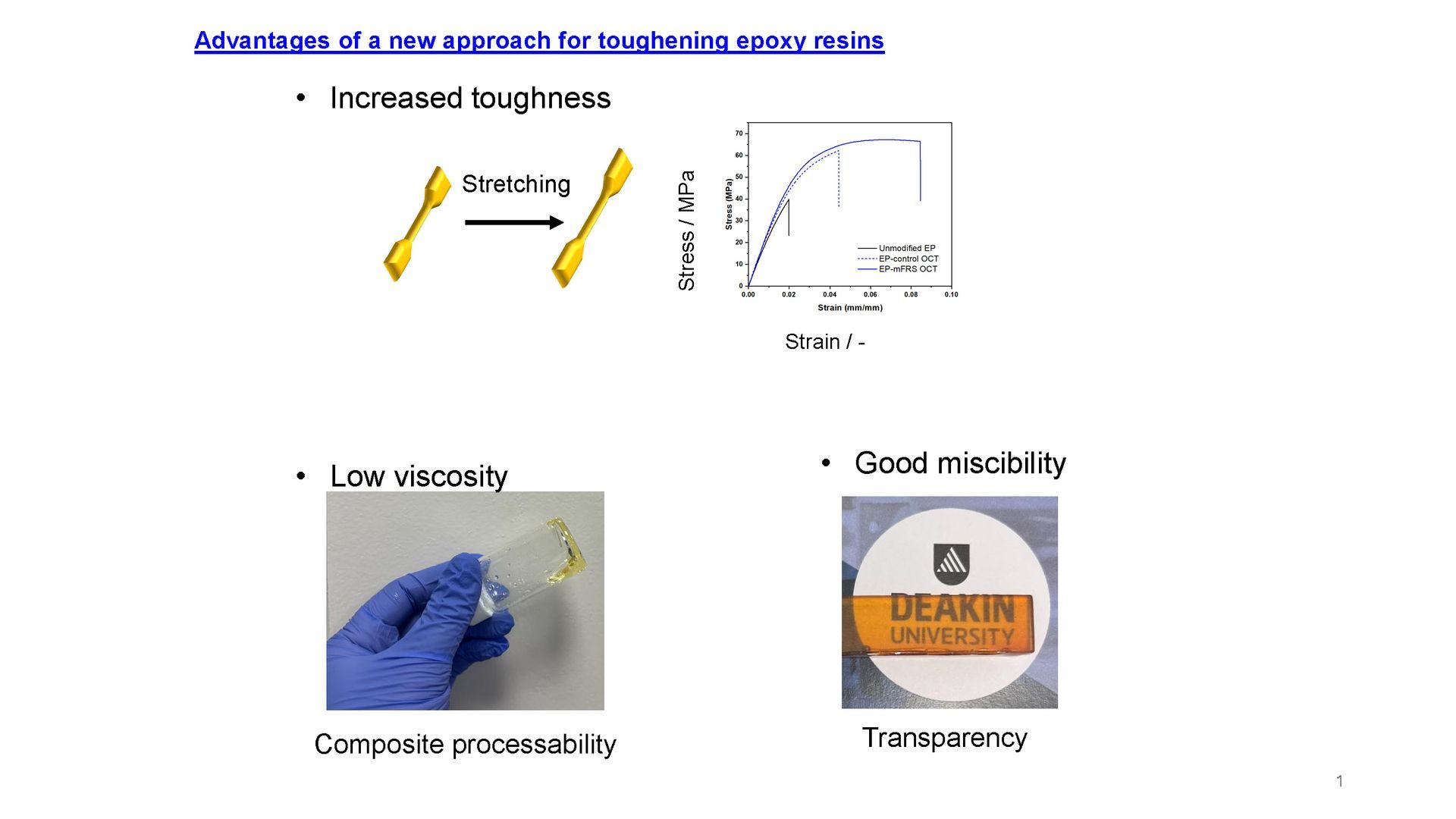8 Questions with Phan Thao Nguyen
Our PhDs are playing a significant role within our program, and in the broader industry.
Phan (Mia) is a second-year PhD candidate at Deakin University. She completed her master's degree at Kyushu University, Japan, which focused on the structure and physical properties of polymers. She has a passion for polymer physics and composite materials.
Mia aspires to improve people's lives through scientific advancements. Her current research focuses on developing a novel method to enhance the toughness of epoxy resins, a crucial thermosetting polymer used in composite fabrication.
Her motivation as a researcher is driven by the belief: "Be a person who brings positive influence on others."
Q1. Under which ACM CRC Research Program does your PhD Masters project sit?
My project is aligned with
RP1 High Performance Composite Materials.
Q2. What is the focus of your PhD Masters?
This project focuses on developing a novel and straightforward approach to toughening thermosetting resin matrices using cost-effective, commercially available raw materials. This method will significantly enhance the integrity and toughness of the resin matrix while maintaining the mechanical properties of epoxy resins.
The modified resin will be used to manufacture high-performance materials for specific applications in Australia, including transportation, marine, and hydrogen engineering. Additionally, this approach will contribute to establish an innovative material formulation that can be implemented in industrial settings.
Q3. When did you become interested in this field? And what made you interested in it?
As a child, I was greatly inspired by the story of Marie Curie – the first woman to win a Nobel Prize and the only woman to win it twice. Her achievements fuelled my dream of becoming a female scientist capable of creating exceptional innovations. Holding onto this passion, I aspired to immerse myself in cutting-edge and professional research environments, such as those in Australia.
Q4. What do you hope to achieve through your PhD Masters? What challenges are you hoping to solve?
Through this project, I aim to develop an innovative and robust toughening approach for resin matrices to enhance their toughness, strength, impact resistance, and strain capacity, particularly under extreme conditions such as low temperatures and high-impact loading. This approach also seeks to optimise the processing methods of resin matrices, making them more practical, accessible, and cost-effective for industrial applications.
Several key challenges I aim to address include developing a formulation suitable for large-scale industrial applications, with a focus on processability, compatibility, and the shelf-life of modifiers. More importantly, the modified epoxy resin matrix should enhance the overall performance of epoxy resin composites, making them more durable and efficient for various applications.
Q5. What are your long-term goals/ambitions?
My long-term ambition is to apply the knowledge and skills I have gained in academia to practical applications, developing innovative materials and technologies that can enhance everyday life. I aspire to bridge the gap between research and industry by creating advanced, sustainable solutions that contribute to society and improve people’s quality of life.
Q6. What’s the best thing about being an ACM CRC PhD student?
It provides me with a strong platform to engage with academic experts and industry partners, allowing me to develop both technical and soft skills while gaining a deeper understanding of real-world challenges.
Q7. What one piece of advice would you give to people thinking of undertaking a PhD in the composites manufacturing area?
“Nothing in life is to be feared, it is only to be understood. Now is the time to understand more, so that we may fear less” - Marie Curie.
Q8. Tell us something about you that would surprise/impress people.
I can speak Japanese a little bit.
Interested to know more?
Visit our Education and Training page to learn more on our HDR Program, and how it’s helping to achieve industry transformation.





